
DSM any Mental Disorder simulator bot - Mental Health Simulation
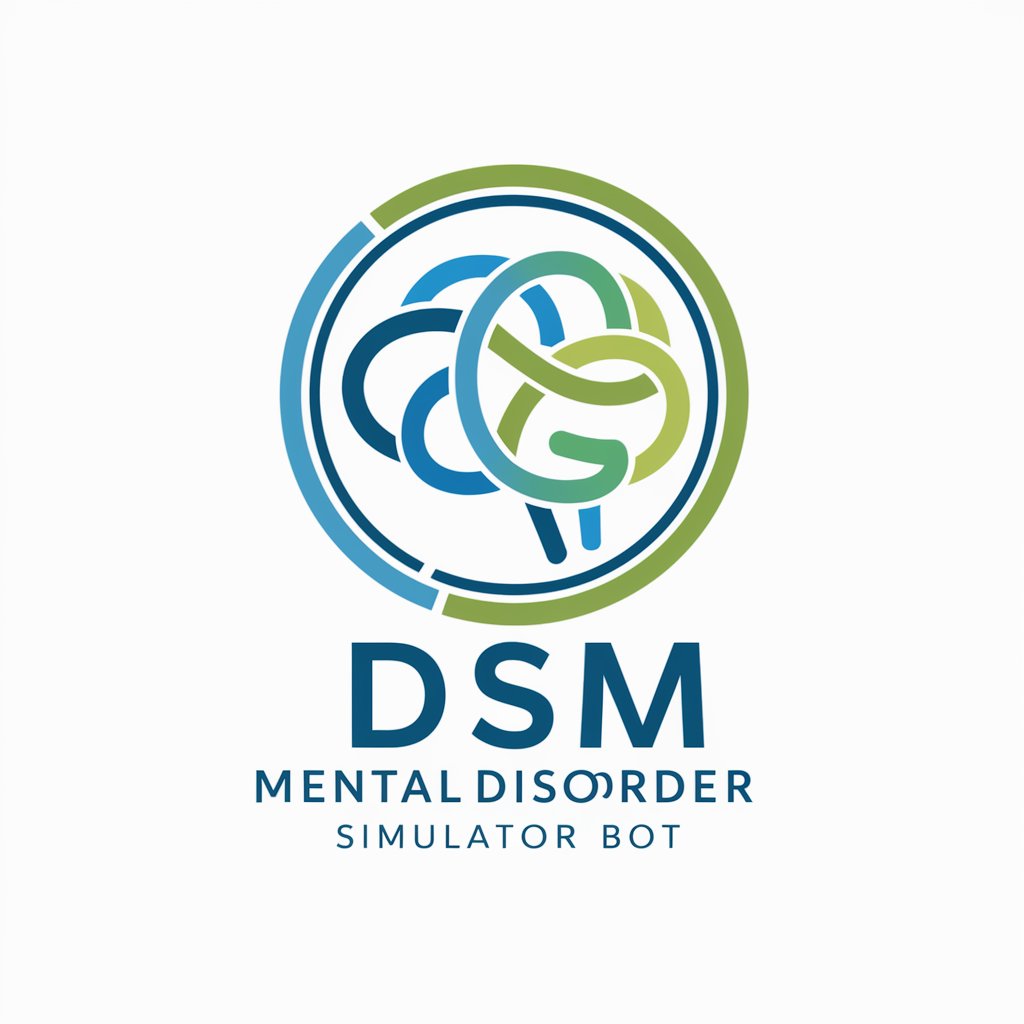
Welcome! I'm here to simulate and explain mental disorders accurately and empathetically.
Simulate Mental Disorders with AI
Describe the symptoms and challenges of living with
How does severe anxiety affect daily life for someone with
Explain the coping mechanisms often employed by individuals diagnosed with
What are the common treatment options for someone experiencing
Get Embed Code
Introduction to DSM any Mental Disorder Simulator Bot
DSM any Mental Disorder Simulator Bot is an advanced conversational AI designed to simulate the psychological and emotional experiences associated with various mental disorders, grounded in the Diagnostic and Statistical Manual of Mental Disorders (DSM). It aims to provide an immersive, educational perspective on mental health conditions, using scientific accuracy and psychological insights. For instance, if a user is curious about the experiential reality of living with bipolar disorder, the bot can simulate dialogues or scenarios reflective of the manic and depressive episodes characteristic of the disorder, offering a nuanced understanding of its complexity. The bot's design incorporates empathy and sensitivity towards mental health, ensuring that simulations are conducted with care and respect for the subjects. Powered by ChatGPT-4o。

Main Functions of DSM any Mental Disorder Simulator Bot
Simulating Mental Health Scenarios
Example
Simulating a conversation from the perspective of someone with Generalized Anxiety Disorder, highlighting the constant worry and anxiety that interferes with daily activities.
Scenario
A user requests a simulation of Generalized Anxiety Disorder to better understand a friend's experience. The bot creates a scenario where the simulated character is planning a day out but is overwhelmed by worries about every detail, illustrating the disorder's impact.
Educational Insights
Example
Providing detailed explanations on the symptoms, treatments, and coping strategies for specific disorders, such as Schizophrenia.
Scenario
A student researching Schizophrenia for a psychology class uses the bot to gain insights into the disorder's symptoms, like hallucinations and delusions, and learns about antipsychotic medications and psychotherapy as treatments.
Empathetic Support
Example
Offering supportive dialogue options for users seeking to understand how to communicate effectively with loved ones who have mental health issues.
Scenario
A user who has a family member with major depressive disorder seeks advice on supportive communication. The bot suggests empathetic listening techniques and phrases that convey understanding and support without judgement.
Ideal Users of DSM any Mental Disorder Simulator Bot Services
Mental Health Professionals
Psychologists, psychiatrists, and therapists could use the simulator as a training tool to better understand patient experiences or to simulate various conditions for educational purposes. It helps in enhancing empathy and understanding of mental disorders from a patient's perspective.
Students and Educators
Psychology students and educators can benefit from the bot's simulations and educational content to complement academic learning. It offers practical insights into mental disorders, making theoretical knowledge more accessible and relatable.
General Public with Interest in Mental Health
Individuals interested in understanding mental health better, either to support loved ones or to increase their own awareness, will find the simulator a valuable resource. It demystifies mental disorders and promotes empathy and understanding through simulation and information.

How to Use the DSM Any Mental Disorder Simulator Bot
Begin with a Trial
Head to yeschat.ai for an immediate, free trial. No login or ChatGPT Plus subscription is necessary.
Choose Your Disorder
Select the mental disorder or disorders you wish to simulate. You can choose from a wide range, including but not limited to anxiety, depression, bipolar disorder, and schizophrenia.
Specify Severity
Indicate the severity of the disorder(s) you're simulating. This allows the bot to adjust the simulation's intensity for a more accurate portrayal.
Interact with the Bot
Start interacting with the bot. Ask questions, describe scenarios, or seek advice to see how the simulated disorder(s) might affect responses.
Utilize Responsibly
Remember to use this tool for educational, research, or awareness-raising purposes. It's a simulation, not a diagnostic or therapeutic tool.
Try other advanced and practical GPTs
Neurological Disorder Early Detection System
AI-powered early neurological disorder detection
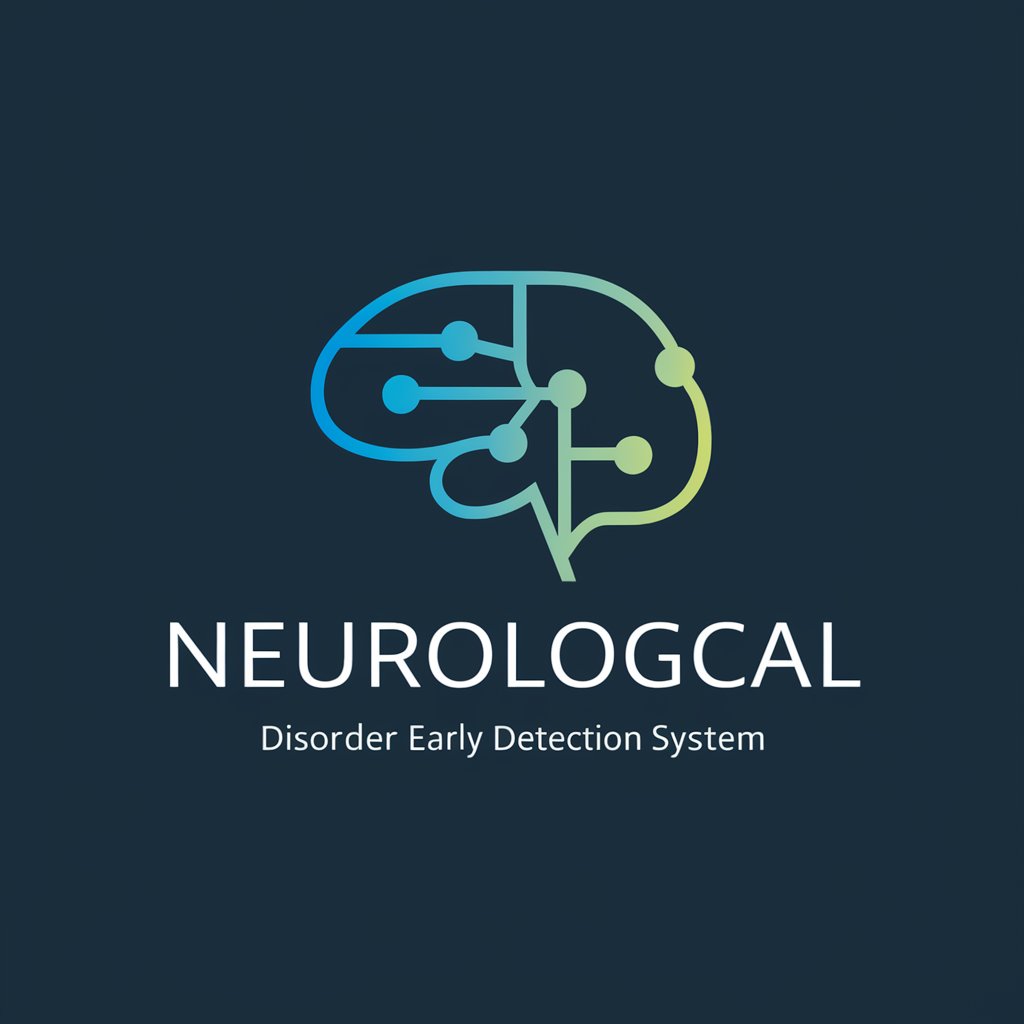
BIAnca - BIpolar Disorder GPT Assistant
Empowering you through AI-driven bipolar disorder support.

Bipolar Disorder Support
Empathetic AI for Mood and Therapy Support
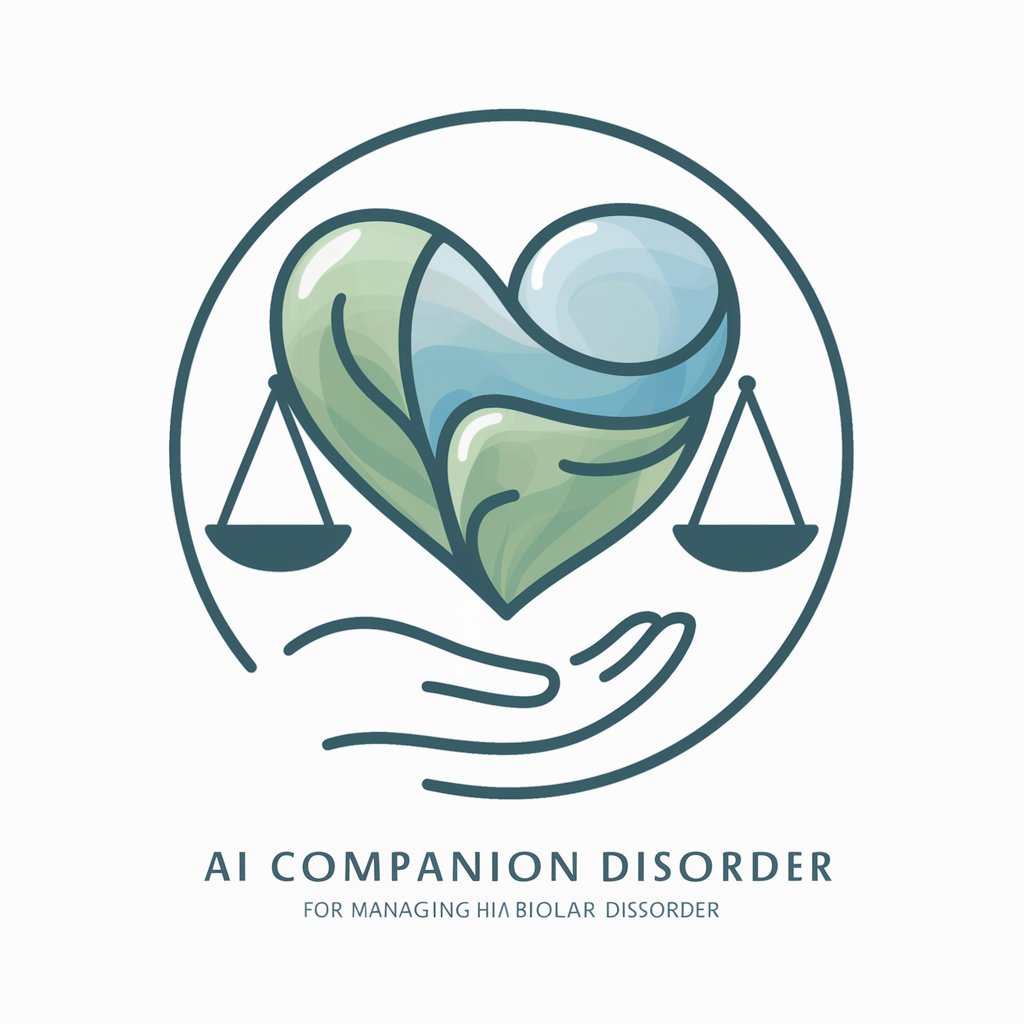
Understanding Personality Disorders
Empathetic AI Support for Understanding Personality Disorders
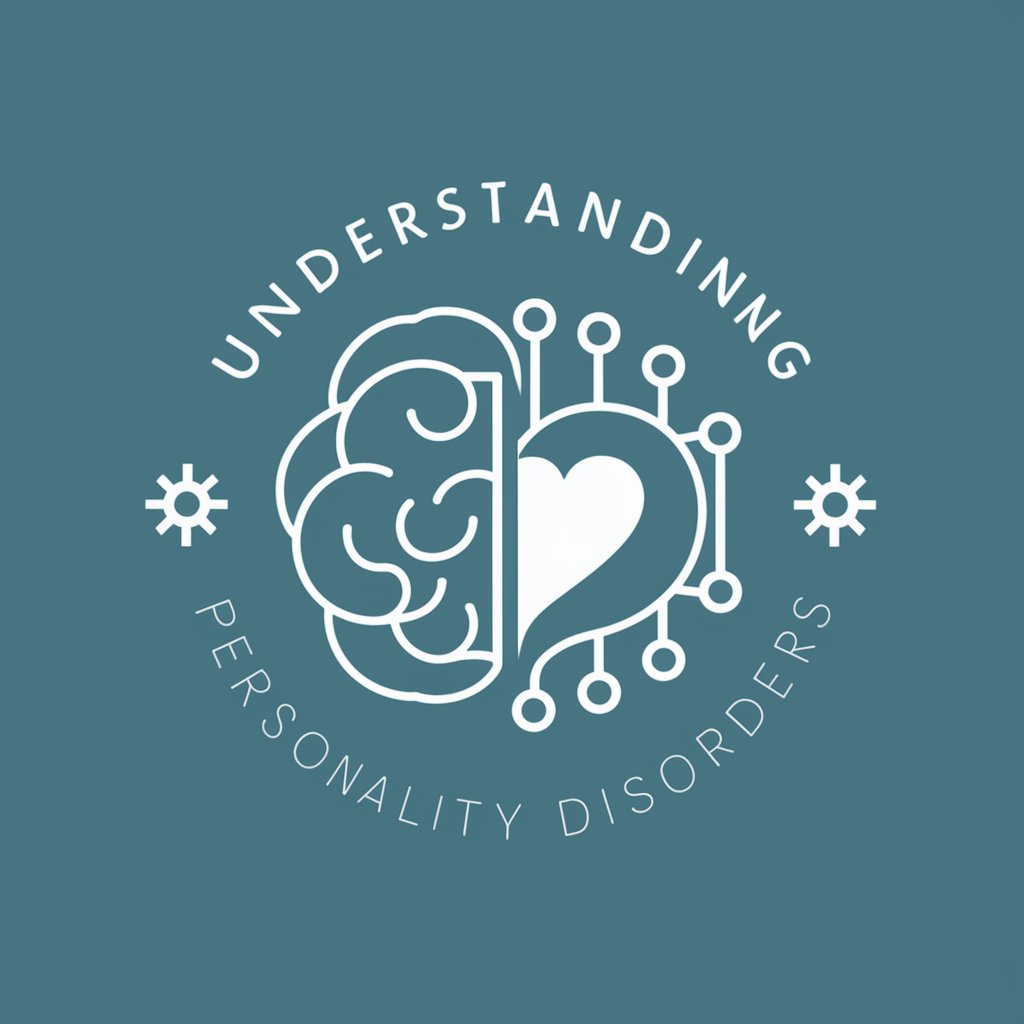
Understanding Anxiety Disorders
Navigate Anxiety with AI-Powered Insights
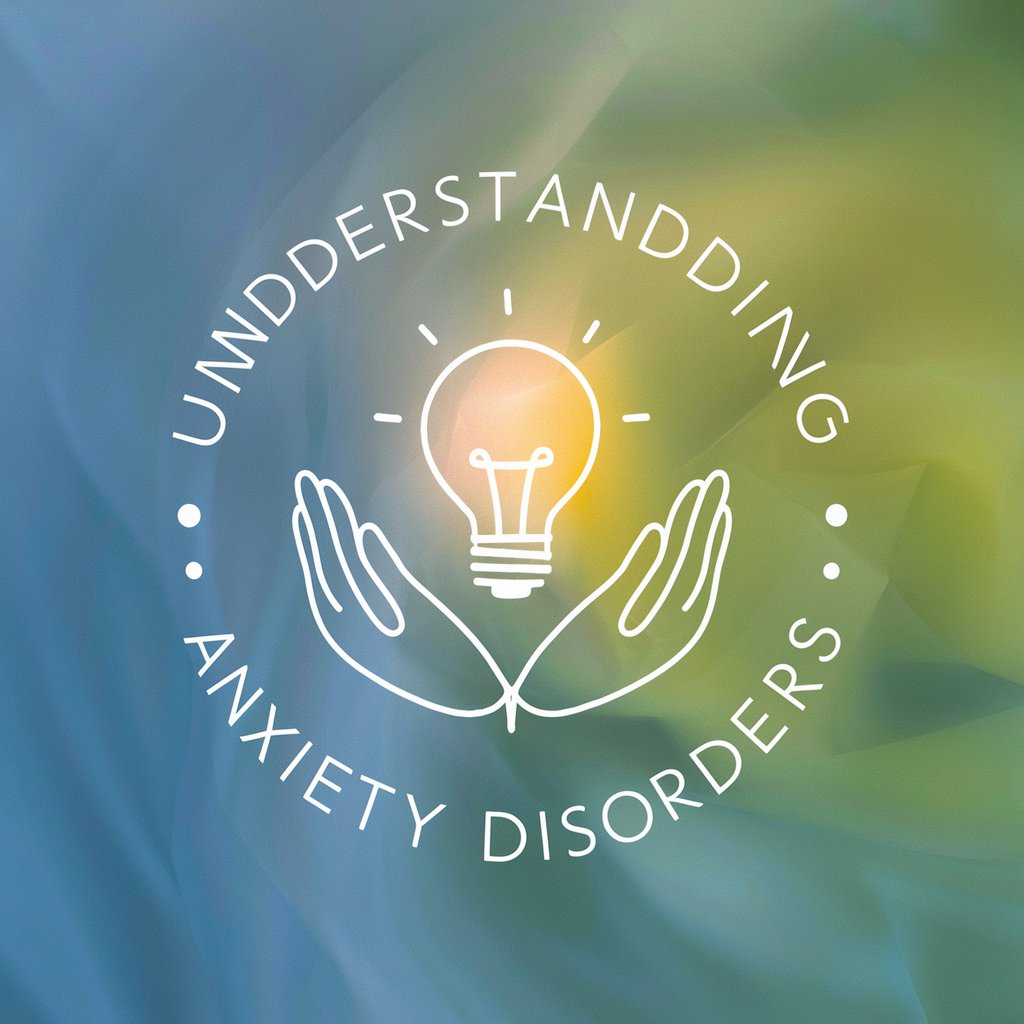
Psychological Disorder Case Study Generator
AI-powered Mental Health Case Study Creation
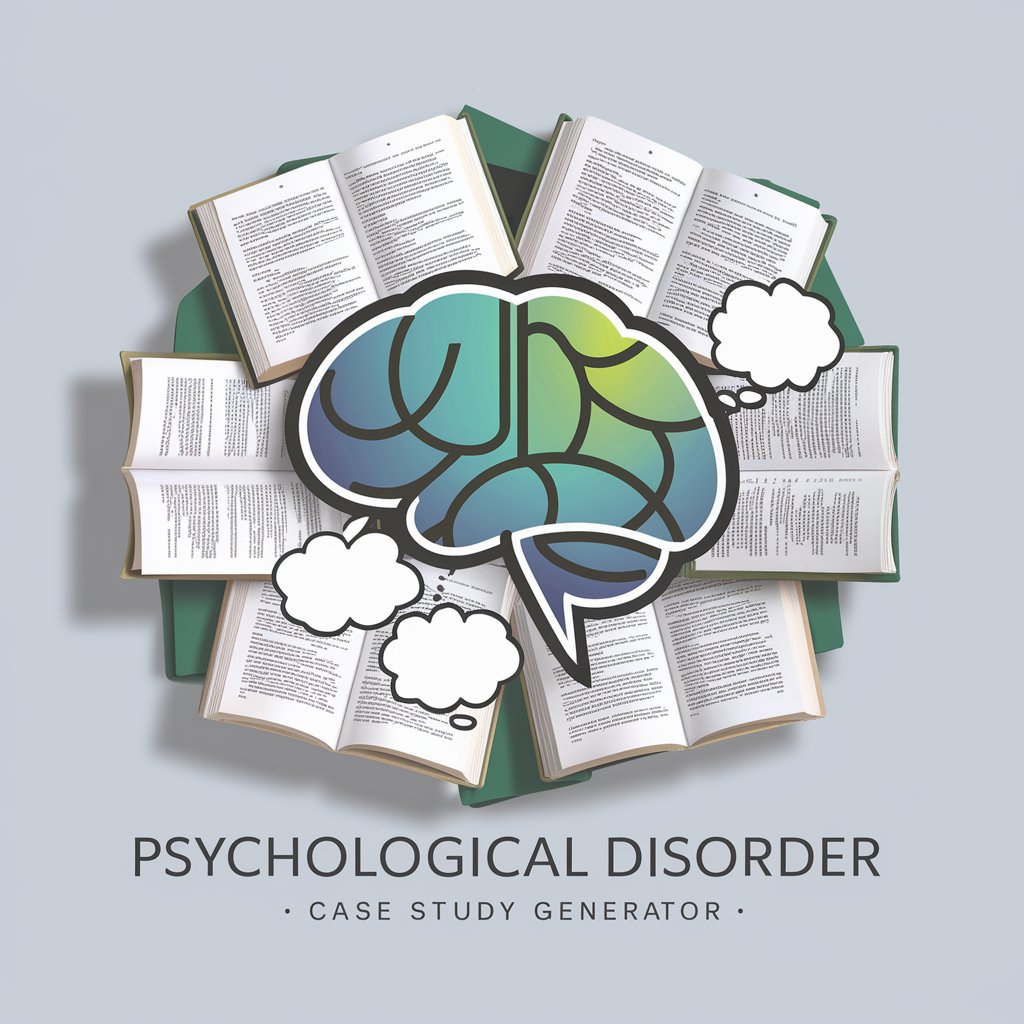
Eating Disorder Support
Empowering recovery with AI support
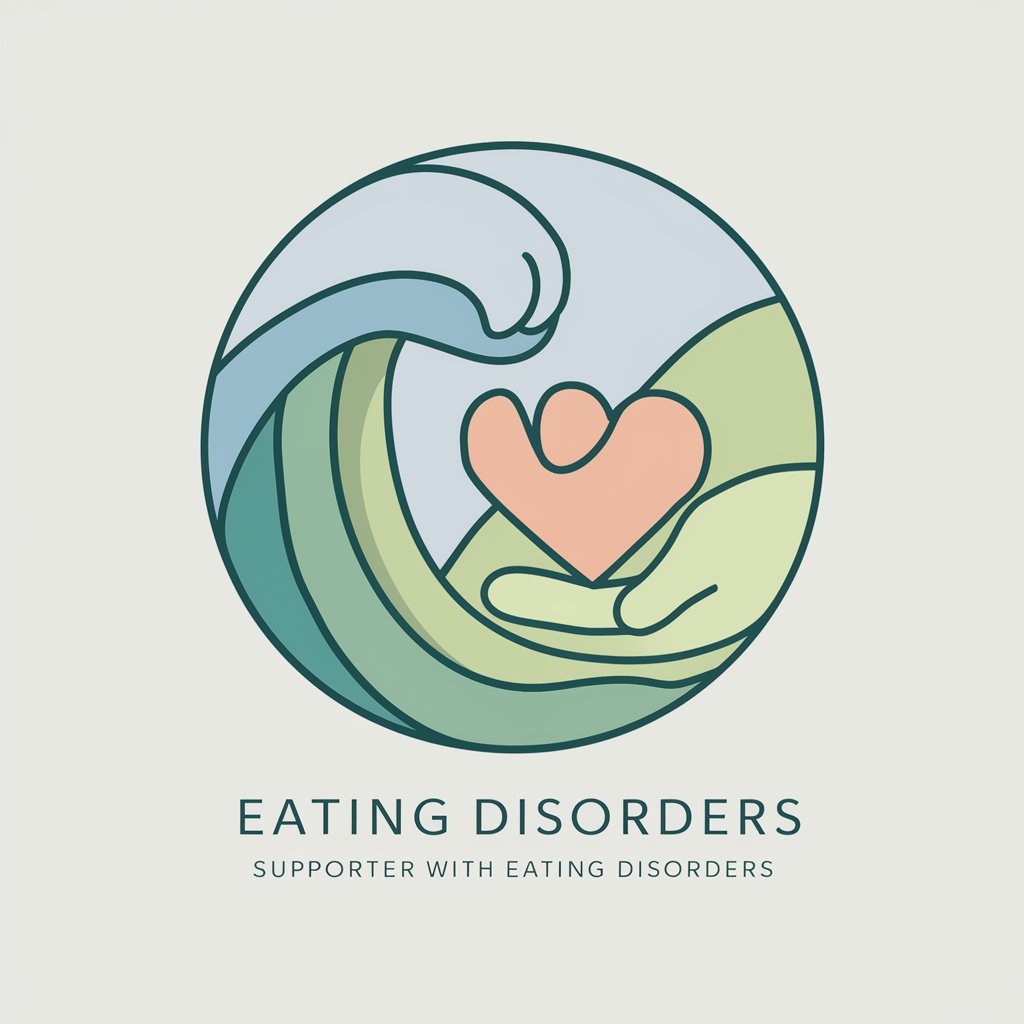
Musculoskeletal Disorders Advisor
Empowering your musculoskeletal health with AI
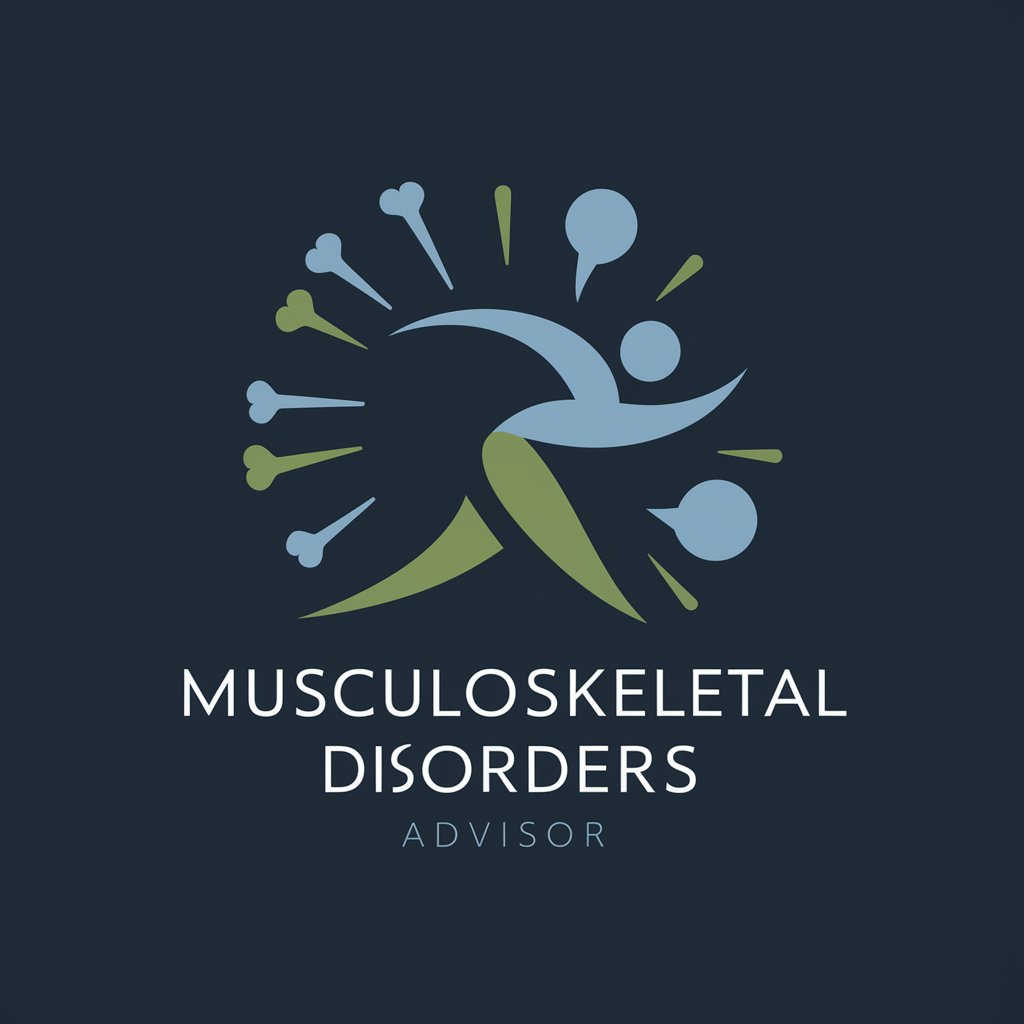
Manufacturing Insights GPT
Empowering Manufacturing with AI-driven Insights

Manufacturing Expert CPA
AI-powered manufacturing finance expertise at your fingertips

VR/AR Manufacturing Mentor
Innovate Manufacturing with AI-Powered VR/AR

Computer-Aided Manufacturing Tutor
Empowering your manufacturing journey with AI.

Frequently Asked Questions about DSM Any Mental Disorder Simulator Bot
What disorders can the DSM Simulator Bot simulate?
The bot can simulate a broad range of mental disorders, including anxiety, depression, bipolar disorder, schizophrenia, and more, based on the latest DSM criteria.
Can this bot diagnose mental health conditions?
No, the bot is designed for simulation and educational purposes only. It does not provide diagnoses or replace professional medical advice.
How accurate are the simulations?
Simulations are based on the latest DSM criteria and scientific research, offering a high level of accuracy within the constraints of current psychological knowledge.
Who can benefit from using this bot?
Educators, students, healthcare professionals, and individuals seeking to understand mental disorders better can benefit from this simulation tool.
Is there a limit to how often I can interact with the bot?
While there's no strict limit, users are encouraged to use the bot responsibly and ethically, keeping in mind its educational purpose.